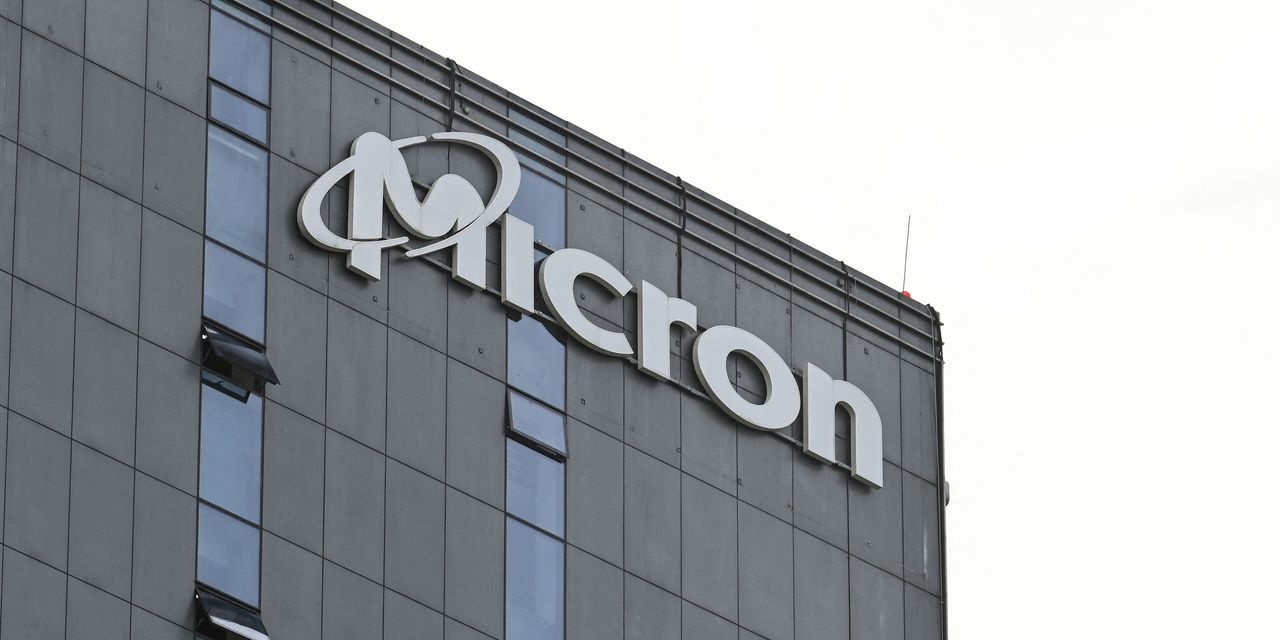Micron Technology Inc. could be approaching a big new semiconductor cycle as it predicts a huge boost from artificial intelligence, but there could be a roadblock in the path.
Micron
MU,
reported a third-quarter loss and a 57% drop in revenue Wednesday, after the chip industry’s oversupply hit the memory-chip maker hard. On the bright side, Micron Chief Executive Sanjay Mehrotra said he believed the memory industry “had passed its trough” and that the company’s margins should improve as the supply-demand balance is gradually restored.
Another big issue for the stock right now, though, is China’s decision to recommend that “operators of critical information infrastructure in China should stop purchasing Micron products.” Mehrotra told analysts on the company’s conference call that the decision will impact about 50% of its products sold in China.
“We currently estimate that approximately half of that China-headquartered customer revenue, which equates to a low double-digit percentage of Micron’s worldwide revenue, is at risk of being impacted,” Mehrotra said on the call. “This significant headwind is impacting our outlook and slowing our recovery.”
More from Therese: AI has given a big boost to stock of this lesser-known Silicon Valley computer maker
He said Micron will work with its long-term customers who are not impacted by China’s decision, and hopefully will increase its share with those customers.
On the plus side, Micron expects to see a substantial boost to its memory business as a result of companies gearing up to run generative AI on their own servers or clouds. “Generative AI [is] becoming a big opportunity and we look at it for 2024 as a big year for AI and for memory and storage, and Micron will be well-positioned,” in the data center with its products, Mehrotra said. He added that it is “very, very early innings for AI,” which is really pervasive. “It’s everywhere.”
Full earnings coverage: Micron CEO calls bottom in memory-chip market, but weak PC, smartphone forecasts cut into expected AI gains
He said it will be in both cloud and enterprise server applications, and due to confidentiality of data, enterprises will be building their own large language models, adding that the DRAM (dynamic random access memory) content required for AI in servers is driving higher demand for memory and storage in servers. In super cluster configurations, for example, the DRAM content can be as much as 100 times higher.
Investors appeared to maintain some caution about when the AI impact will kick in, even as some analysts have forecast that AI demand will lead to a general supercycle for many hardware companies. Micron’s shares see-sawed in after-hours trading Wednesday, ending the extended session up about 3%.
See also: Will generative AI complete the cloud transition? One prominent executive thinks so.
In a note ahead of the company’s earnings, Raymond James analyst Srini Pajjuri said that the impact from China “should be short-lived given the commodity nature of Micron’s products.”
Right now, it’s too early to say how long China may be a drag for Micron, but if Mehrotra is right, investors should take heart that the company is going to be another beneficiary of the coming AI boom.
Read the full article here




